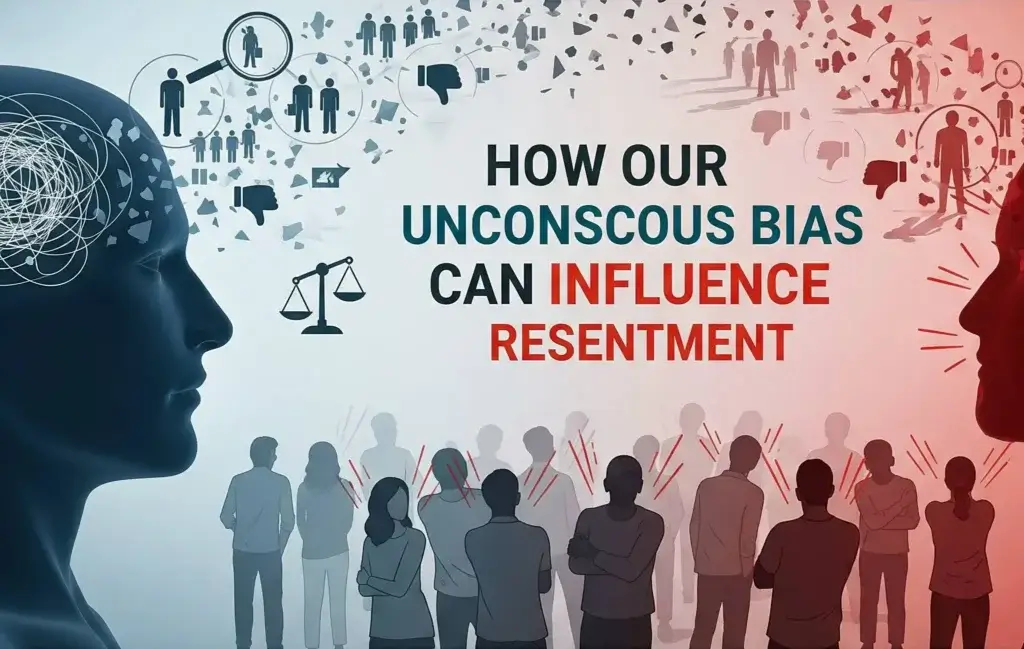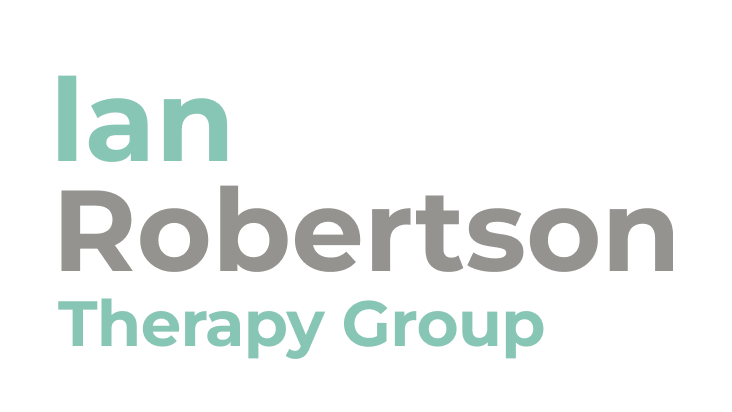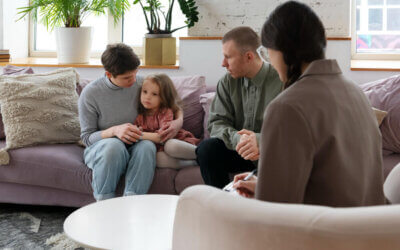
Have you ever noticed yourself feeling resentful without fully understanding why? Sometimes, the emotions we carry are not only about what has happened in the present but also about deep-rooted patterns we are not fully aware of. At Ian Robertson Therapy Group, we often work with clients who struggle with resentment and are surprised to discover how unconscious bias influences the way they feel, think, and act. This blog was written to help you understand how unconscious bias shapes resentment, why it matters for your relationships, and how to move toward greater awareness and healing.
What is Unconscious Bias?
Unconscious bias refers to the automatic judgments and stereotypes our brains create without us realizing it. Influenced by cultural conditioning, personal experiences, and societal norms, these biases affect how we perceive others and ourselves. They can shape our emotional state, behaviour, professional opportunities, and mental wellness. Even when we do not intend harm, these unconscious patterns can lead us to favour some groups over others or make unfair assumptions. Over time, they can create resentment, conflict, and disconnection.
Research, including work by sociologists such as Dr. Elizabeth Levy, shows that unconscious bias is shaped by media, social environments, and early experiences. For example, if you grew up surrounded by negative stereotypes about a certain group, you may unknowingly carry those biases into adulthood. The key to moving forward is developing self-awareness and beginning to challenge these hidden patterns.
If you are interested in related patterns of thought and behaviour, you may also like our blog on The Blame Game: Are You a Projector or a Reflector.
The Psychology of Resentment
Resentment is a powerful and complex emotion. It often arises from a sense of injustice or unfairness, feelings of betrayal, or a perceived lack of control. Dr. Robert Enright describes resentment as a moral emotion, showing that we know right from wrong and feel hurt when we believe wrong has been done to us. The problem arises when resentment builds unchecked, often due to unconscious bias reinforcing old narratives. Without reflection, resentment can grow into cynicism, anger, or passive-aggressive behaviour, which negatively impacts mental health and relationships.
For more insight into how past experiences can shape present patterns, you might find our post on Understanding Your Relationship Attachment Style helpful.
The Connection Between Bias and Resentment
Unconscious bias and resentment are closely connected. Our biases shape the way we see the world, often filtering interactions through assumptions we may not even realize we hold. When others feel the effects of these biases, resentment can grow on both sides. The one carrying the bias and the one experiencing unfair treatment. Bias reduces empathy, fuels misunderstanding, and prevents honest dialogue. The more we ignore these biases, the more resentment festers and harms our relationships.
Examples of Bias Leading to Resentment
Unconscious bias can show up in daily life. In the workplace, a manager may favour employees who mirror their own background, leading to resentment among those overlooked. In personal relationships, assumptions based on stereotypes can cause deep frustration and disconnection. Over time, these small but repeated experiences accumulate into resentment that strains trust and closeness.
For additional reflection on how our inner patterns affect others, see our blog on How Anxiety in Parents Can Affect Children.
The Impact of Resentment no
Resentment can quietly erode both personal and professional relationships. It can create distance, reduce collaboration, and damage trust. Left unaddressed, resentment can lead to health issues, anxiety, or depression. In workplaces, it hinders teamwork and fairness. In personal relationships, it builds walls where there should be connection. Recognizing the cost of resentment is the first step toward change.
5 Ways to Address Bias and Resentment
Becoming aware of unconscious bias requires courage and honesty. Here are some strategies to help:
1. Cultivate Self-Awareness
Reflect on your beliefs, behaviours, and emotional responses. Journaling or therapy can help uncover hidden patterns.
2. Educate Yourself
Seek out diverse voices and perspectives. Learn from books, media, and conversations that challenge your worldview.
3. Practice Empathy
Try to see situations from another’s perspective. Empathy can soften resentment and open the door to healing.
4. Forgive and Let Go
Forgiveness is not about excusing harm but about releasing yourself from the weight of resentment. It is an ongoing process of choosing peace.
5. Seek Support
A therapist can help you uncover unconscious biases and unresolved feelings that keep you stuck. Remember, the self cannot always fully see the self. Sometimes, we need support from outside to truly grow.
Conclusion
Unconscious bias is not something we choose, but it is something we can learn to recognize and change. When left unchecked, these hidden patterns can fuel resentment, damage relationships, and limit personal growth. By developing self-awareness, practicing empathy, and seeking support, you can begin to release resentment and build stronger, healthier connections. If you are noticing how unconscious bias and resentment may be shaping your life and relationships, know that you do not have to work through it alone. Our team is here to listen and support you with care.











